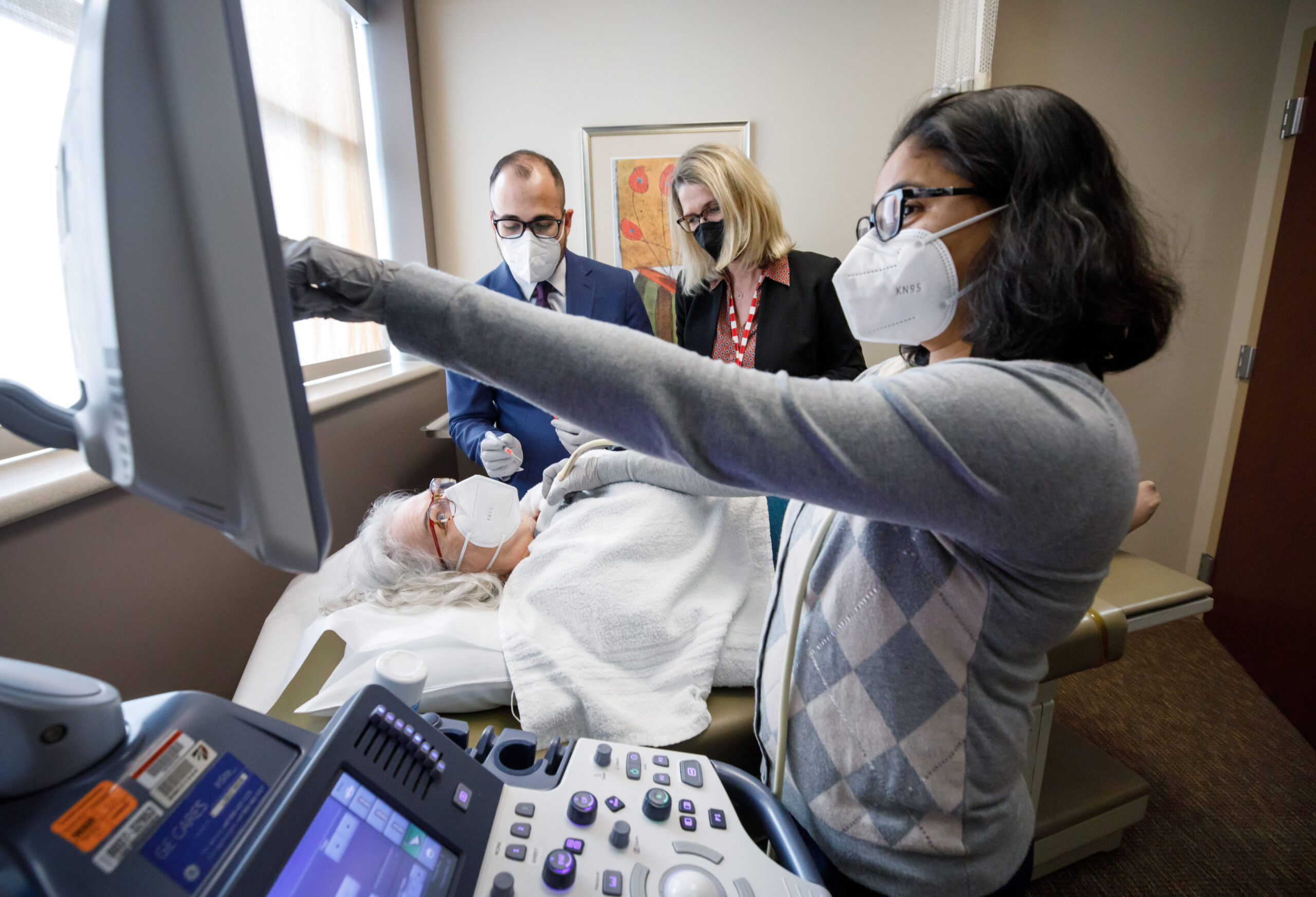This story appeared in the Internal Medicine Department’s 2022 Biennial Report, which was published earlier this year.
Because of an increased local and regional need for specialists who treat cancers of the endocrine system, the UNMC Division of Diabetes, Endocrinology and Metabolism has further expanded its thyroid and endocrine tumor multidisciplinary team.
Thyroid nodules are common and affect about 50% of those older than 50. Roughly 5-15% of thyroid nodules turn out to be thyroid cancer — a cancer that has tripled over the past three decades.
The multidisciplinary team is composed of endocrinologists, endocrine surgeons, head and neck surgeons, medical oncologists, radiologists, pathologists and geneticists.
Clinics in the Fred & Pamela Buffett Cancer Center, Village Pointe Cancer Center and Bellevue Cancer Center are dedicated to the evaluation and treatment of thyroid and endocrine tumors and cancers, as well as dedicated survivorship clinics for long-term surveillance.
“We have been building this program for many years,” said Whitney Goldner, MD, medical director of the multidisciplinary thyroid and endocrine tumor program. “It is important to have a multidisciplinary approach to evaluation and treatment of a variety of disorders, including thyroid and endocrine tumors. Every provider is a valuable member of the multidisciplinary team and approaches each case from a slightly different perspective.
“The team provides input to the best approach to each patient’s care. We can see patients on the same day if they need to see multiple providers, and we also discuss complicated cases at our weekly multidisciplinary conference. Many patients tell us they like the fact that their cases are discussed at a multidisciplinary conference, so they know all treatment options have been considered.”
The group also has a multitude of ongoing clinical and translational research projects and evaluates and treats endocrine disorders that occur as a result of other types of cancer treatment.
